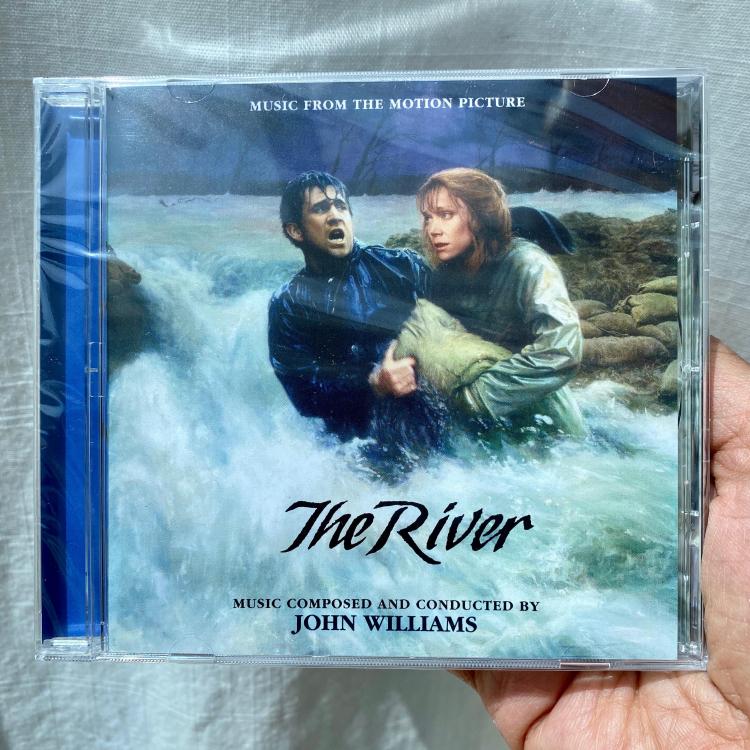-
Posts
466 -
Joined
-
Last visited
Contact Methods
-
Website URL
https://elmahboob.com/
Profile
-
Location
Toronto
Recent Profile Visitors
5,610 profile views
-
 The Five Tones reacted to a post in a topic:
Ecoutez le cinéma John Williams release - The Legend of John Williams 20CD box set
The Five Tones reacted to a post in a topic:
Ecoutez le cinéma John Williams release - The Legend of John Williams 20CD box set
-
 BB-8 reacted to a post in a topic:
JWFan turns 25!
BB-8 reacted to a post in a topic:
JWFan turns 25!
-
 Falstaft reacted to a post in a topic:
JWFan turns 25!
Falstaft reacted to a post in a topic:
JWFan turns 25!
-
 Andy reacted to a post in a topic:
JWFan turns 25!
Andy reacted to a post in a topic:
JWFan turns 25!
-
 Ricard reacted to a post in a topic:
JWFan turns 25!
Ricard reacted to a post in a topic:
JWFan turns 25!
-
Congratulations, Ricard! You all deserve to celebrate. I've been coming here since 2000 (not as much as I'd like in recent years, though) and it's impressive how the site has developed as the hub for a vast, interconnected community but also as the definitive resource for all things John Towner Williams. As the nearly 92 year old maestro might say, long may you reign!
-
 Yavar Moradi reacted to a post in a topic:
Quartet Announces: HEIDI/ JANE EYRE (2CD)(John Williams) Remastered and Expanded
Yavar Moradi reacted to a post in a topic:
Quartet Announces: HEIDI/ JANE EYRE (2CD)(John Williams) Remastered and Expanded
-
 MaxTheHouseelf reacted to a post in a topic:
John Williams Autograph
MaxTheHouseelf reacted to a post in a topic:
John Williams Autograph
-
 The Five Tones reacted to a post in a topic:
Williams debuts "Helena's Theme" from Indiana Jones 5 at the Hollywood Bowl
The Five Tones reacted to a post in a topic:
Williams debuts "Helena's Theme" from Indiana Jones 5 at the Hollywood Bowl
-
 The Five Tones reacted to a post in a topic:
Williams debuts "Helena's Theme" from Indiana Jones 5 at the Hollywood Bowl
The Five Tones reacted to a post in a topic:
Williams debuts "Helena's Theme" from Indiana Jones 5 at the Hollywood Bowl
-
 The Five Tones reacted to a post in a topic:
FIDDLER ON THE ROOF: 50th Anniversary Remastered Edition from La-La Land Records (3-CD)
The Five Tones reacted to a post in a topic:
FIDDLER ON THE ROOF: 50th Anniversary Remastered Edition from La-La Land Records (3-CD)
-
 The Five Tones reacted to a post in a topic:
FIDDLER ON THE ROOF: 50th Anniversary Remastered Edition from La-La Land Records (3-CD)
The Five Tones reacted to a post in a topic:
FIDDLER ON THE ROOF: 50th Anniversary Remastered Edition from La-La Land Records (3-CD)
-
 The Five Tones reacted to a post in a topic:
Tanglewood 2021 season includes several Williams concerts
The Five Tones reacted to a post in a topic:
Tanglewood 2021 season includes several Williams concerts
-
 The Five Tones reacted to a post in a topic:
Tanglewood 2021 season includes several Williams concerts
The Five Tones reacted to a post in a topic:
Tanglewood 2021 season includes several Williams concerts
-
 The Five Tones reacted to a post in a topic:
WAR OF THE WORLDS (2005) 2CD edition from Intrada Records 2020
The Five Tones reacted to a post in a topic:
WAR OF THE WORLDS (2005) 2CD edition from Intrada Records 2020
-
 The Five Tones reacted to a post in a topic:
WAR OF THE WORLDS (2005) 2CD edition from Intrada Records 2020
The Five Tones reacted to a post in a topic:
WAR OF THE WORLDS (2005) 2CD edition from Intrada Records 2020
-

WAR OF THE WORLDS (2005) 2CD edition from Intrada Records 2020
The Five Tones replied to crocodile's topic in JOHN WILLIAMS
I love when MM references the intertextual in JW's scores, e.g. the above in context with Lost World (I think?) I was watching Jaws with one of my kids within a day of listening to the podcast, and this made me think about how music was used there too. There are many great unscored moments, the human to human dramas but also the death of Quint, which in a way might reflect his own pathetic human struggle and pulls away the myth around Quint's Tale, the Sea Hawk-like music, "Spanish Ladies," etc. My set arrived a few days ago and I've listened to the score presentation. Sound is as fantastic as I'd expected, if maybe slightly less of a revelation than MR. Listening now, AI, MR and WotW really feel like a musical and sonic trilogy. In some places, WW also feels like a continuation of the darker parts of RotS [EDIT: yes, @lemoncurd, I hear PoA too], and some of that quasi-operatic minor-mode and elegiac writing undermines the more abstract, brutalist content that potentially makes the score unique in this period of JW's work (or any period). There's a lot of Dies Irae bleeding out here and there. Blatant Rite of Spring/Jaws in the Intersection Scene, nice balance including the woodwinds but again it doesn't feel brutalist rather than a shot of a well-known syrup. The latter parts of Prologue/Closing Montage have a starry night flavour which references SW in a less overt way. I haven't seen the film since 2005 but do plan to revisit it. I appreciate having both the Freeman and no-Freeman options. I do like where JW stretches in tiny ways, e.g. in the last 23 seconds of Red Planet, the rising string glissandi from CE3K (referencing composer Iannis Xenakis) juxtaposed with the hammered two-note chord that opens John Adams's Harmonielehre (which Adams also brings back in Doctor Atomic, coincidentally in 2005). Truly spooky, and the improved sonics make it pop. Epilogue is still my favourite cue, for several reasons, including that it focuses on three trumpets played quietly which is a kind of a twist for JW in a blockbuster. It's really all about the tuning of that opening minor chord that is a drama of its own (that we aren't necessarily aware of on a conscious level); it's straining against the human convention of the equal temperament tuning system in a way that could suggest the breakdown of society after its destruction. On top of that, towards the end JW lets the three trumpets' lines drift in different directions and land on other unrelated minor chords (so JW) and interesting dissonances before returning to the original chord again. And in the last 90 seconds, after playing an elegy that is somewhere between the Epilogue from the re-recording of The Fury and Cybertronics from AI, there are the strings in the background, hanging on the two-note chord! JW at his best. There are lots of other great bits more in that "trilogy" vein, as well. But returning to this score, I was struck that (as with MR) it's not nearly as monochromatic and modernist out of context as I remembered. -

WAR OF THE WORLDS (2005) 2CD edition from Intrada Records 2020
The Five Tones replied to crocodile's topic in JOHN WILLIAMS
Ordered. Haven't seen the film since 2005, but definitely admired the score as part of JW's dark sci-fi run of the period. Didn't love the OST CD as much as I'd wanted to, so hoping as with MM's expanded MR release for a proper experience of the music in its full range of colours and dynamics. -

John Williams & the Vienna Philharmonic: January 18/19 2020
The Five Tones replied to Ricard's topic in JOHN WILLIAMS
Many thanks Max! -

John Williams & the Vienna Philharmonic: January 18/19 2020
The Five Tones replied to Ricard's topic in JOHN WILLIAMS
CD arrived from Amazon on Saturday. Such a historic event and I'm so happy about it as a fan and amazed at the achievement, even if by the time I got down to listening to the music I had a hard time not comparing it to everything that's come before especially recently with the Dudamel and Mutter releases. As a general response. And having that composer/musician perfectionist response (i.e. wasn't there time to retake all the mistakes?). And if I'm being honest, having that biased reaction in hearing American music performed by continental European orchestras, no matter how great or interconnected with the repertoire style-wise, still not quite an ideal fit. Shouldn't really matter on this occasion, right? The trick is to take what is a nostalgic viewpoint on all of these classic gems and get into the moment. Still, the editing out of nuanced transitions, retouching of details here and there and adding concert endings compared to the recordings during the film scoring sessions inevitably throw me off, no less now than in the 80s or 90s, etc. All that said, I'm still chiming in to say "Bravo, Maestro." I really appreciate the noise free presentation, and the sound of the orchestra and the hall is quite superb. (I was listening to the maestro's music on a tuned audiophile system starting in 1980 so I've been paying close attention a long time!) I really heard those echoes of Korngold in Hook. I was most moved by CE3K and Luke and Leia. The Imperial March was *impressive* and both it and the Raiders March were suitably stately. Looking forward to watching the video at some point. Oh, and was an HQ square cover image for the CD posted anywhere? -
Similar. In ROTJ it's more exposed in the mix and has a gesture-like LFO effect - could've been Minimoog, Oberheim, Roland Jupiter, Prophet 5, so many period instruments. In River, it feels a little like the breathy pads of the peak 80s a la Peter Gabriel - Synclavier, Fairlight or even Yahama DX-7. Great mood setting opener! Also, he really nabs you with that deceptively simple main theme. The 4-3 suspension resolved, stoic, sometimes harmonized with the flat seventh degree, bluesy, contemporary, unwavering within a changed harmony. Perfect music for a family... with a little interval nod to another: Luke & Leia. The second family theme with its parallel minor seventh chords is quite noirish, and adding to what I wrote above about disaster specifically Earthquake, "The Hotel" has that "City Theme," 5-7pm, hard liquor on the rocks feel (I've no recollection of what actually happens in that scene after 35+ years!)
- 509 replies
-
- remastered
- expanded
-
(and 5 more)
Tagged with:
-
Have listened now and really like it (in that rainy day, mellow mood way others have mentioned). It fits a niche in his output. Matessino describes it as a return to his Americana period that ended in 1974, which is quite evident, but it also felt literally like a return to 1974 in some ways, as though The River was another disaster score and not a farm family drama. I can even hear the main theme with a brass variation and a deep low note, a la Towering Inferno main title, although that is beyond the scope of this score. Even the acoustic drum kit in End Credits (The River) echoes that instrument's presence in Earthquake, an overt reference to the everyday world and the music of the street after so much fantasy genre music. Those Simmons drums in the film version of Leaving Home sound like Sly Dunbar got on the track after finishing Black Uhuru's Anthem sessions! In any case, The River is the soft close to his golden decade. I do hear style touches here and there that connect to SpaceCamp, even though that film is on the other side of a two-year feature scoring sabbatical.
- 509 replies
-
- remastered
- expanded
-
(and 5 more)
Tagged with:
-
Arrived in Toronto this morning, 15 days after ordering. Grateful to still be able to have this access and engagement during these times.
- 509 replies
-
- remastered
- expanded
-
(and 5 more)
Tagged with:
-
Sure. But now we all need to know MM's or someone else's rationale for the ordering... JWFan won't rest until the reason is known, lol
- 509 replies
-
- remastered
- expanded
-
(and 5 more)
Tagged with:
-
If it really mattered, I agree, most expansions put the OST presentation at the back, kind of like singles, remixes and live versions on pop expansions... in the order versions were created. But, does it really matter? Isn't everyone ripping their collection to iTunes or another player anyway. These releases always end up on several lists for me: JW master playlist, JW (by decade), LLL as issued, JWFan C&C, iPhone list, etc. and tracks are variously reordered, omitted, adjacent to different programs depending.
- 509 replies
-
- remastered
- expanded
-
(and 5 more)
Tagged with:
-
Those for sure would be a "top 3 Gothic" alone, but I mean it very generally to refer to the darker, melodramatic, almost (but not quite) operatic side. So not just the actual period Gothic setting of those pieces, but the American gothic of pieces like Nixon or Black Sunday or even Minority Report, bits of Sleepers. The Kryptonian act of Superman which I love. "The Hungry Sea" episode of Lost in Space, that weirdly explosive First Act Finale from Fiddler on the Roof. Gothic in the way ANH is that none of the other episodes quite are (possibly due to the darker sound of its recording). TLJ minus the Canto Bight sequences. Much of CE3K. When the Chinese invade in Seven Years in Tibet. The macabre, tragic or foreboding moments, still very tonal as opposed to the modernistic or experimental textures. And not the rhythmic, action/chase stuff, which I also love. Definitely it's there in places in the sound samples I heard of The River. Obviously, only one side of what he does so well. I'm looking forward to this score as I suspect it captures a more casual, personal JW ca. 1984, as well as including other sides like Americana (he has 52 flavours of that), folk and pop/contemporary. Not sure 16 year old me would agree, and would have far preferred ToD back then.
- 509 replies
-
- remastered
- expanded
-
(and 5 more)
Tagged with:

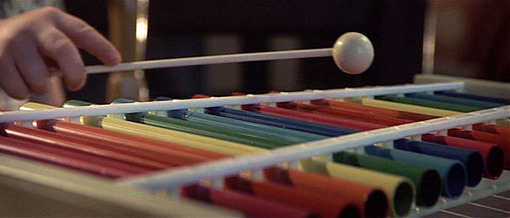
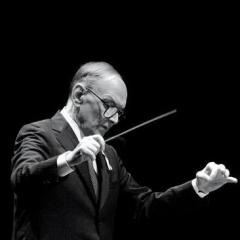

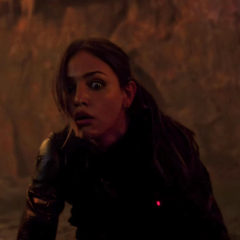
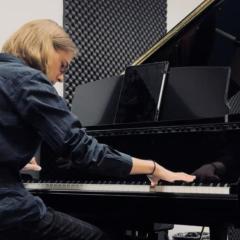
.thumb.jpeg.d7b680b70f0973c0aa11eed91abafe44.jpeg)

